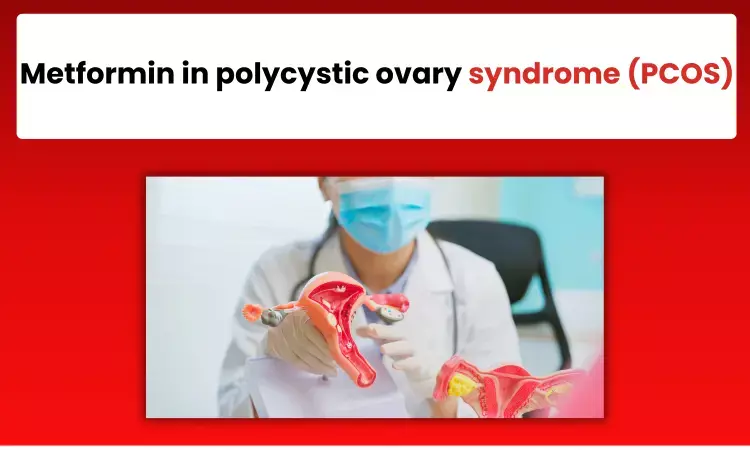- Home
- Medical news & Guidelines
- Anesthesiology
- Cardiology and CTVS
- Critical Care
- Dentistry
- Dermatology
- Diabetes and Endocrinology
- ENT
- Gastroenterology
- Medicine
- Nephrology
- Neurology
- Obstretics-Gynaecology
- Oncology
- Ophthalmology
- Orthopaedics
- Pediatrics-Neonatology
- Psychiatry
- Pulmonology
- Radiology
- Surgery
- Urology
- Laboratory Medicine
- Diet
- Nursing
- Paramedical
- Physiotherapy
- Health news
- Fact Check
- Bone Health Fact Check
- Brain Health Fact Check
- Cancer Related Fact Check
- Child Care Fact Check
- Dental and oral health fact check
- Diabetes and metabolic health fact check
- Diet and Nutrition Fact Check
- Eye and ENT Care Fact Check
- Fitness fact check
- Gut health fact check
- Heart health fact check
- Kidney health fact check
- Medical education fact check
- Men's health fact check
- Respiratory fact check
- Skin and hair care fact check
- Vaccine and Immunization fact check
- Women's health fact check
- AYUSH
- State News
- Andaman and Nicobar Islands
- Andhra Pradesh
- Arunachal Pradesh
- Assam
- Bihar
- Chandigarh
- Chattisgarh
- Dadra and Nagar Haveli
- Daman and Diu
- Delhi
- Goa
- Gujarat
- Haryana
- Himachal Pradesh
- Jammu & Kashmir
- Jharkhand
- Karnataka
- Kerala
- Ladakh
- Lakshadweep
- Madhya Pradesh
- Maharashtra
- Manipur
- Meghalaya
- Mizoram
- Nagaland
- Odisha
- Puducherry
- Punjab
- Rajasthan
- Sikkim
- Tamil Nadu
- Telangana
- Tripura
- Uttar Pradesh
- Uttrakhand
- West Bengal
- Medical Education
- Industry
Metformin Reduces Serum Irisin in Polycystic Ovary Syndrome: 2024 Indian Experience

Metformin therapy effectively reduces serum irisin levels in polycystic ovary syndrome (PCOS) patients by improving insulin resistance, a new Indian study has reported.
The study conducted by Telagareddy et al. published in the Indian Journal of Endocrinology and Metabolism, earlier this year, showed serum irisin levels are elevated in PCOS patients, particularly those who are overweight or obese. Metformin significantly lowers median serum irisin levels from 13.9 to 12.1 ng/ml (P<0.001), with the change in irisin levels correlating with improved insulin resistance as measured by HOMA-IR (homeostatic model assessment of insulin resistance).
The study enrolled 187 PCOS patients aged 18–40 years from a tertiary care center between July 2021 and January 2023, with 146 classified as overweight or obese (BMI ≥23 kg/m²). Of these 146 patients, 99 were selected for the intervention study after excluding those planning pregnancy or requiring OCP/anti-androgens. Participants were randomized into two groups; 67 received metformin therapy (MF group), starting at 500 mg twice daily and increasing thrice daily, while 32 received only lifestyle modifications (LSM group). Both groups were advised to engage in moderate aerobic exercise (at least 150 minutes per week) and aim for a caloric restriction to achieve a 3–5% weight loss. The impact of metformin therapy on serum irisin levels was assessed after six months.
Key findings from the study include:
- Increased Serum Irisin in PCOS: PCOS patients had significantly higher serum irisin levels than age-matched controls, independent of BMI [12.47 (8.1–17.7) vs 8.3 (7.0–9.6) ng/ml, P < 0.001]. Overweight/obese PCOS patients (BMI≥23 kg/m2) exhibited even higher irisin levels than normal-weight PCOS patients (BMI < 23 kg/m2) [13.45 (8.9–19) vs 9.8 (6.9–12.6) ng/ml, P< 0.001].
- Serum Irisin - Correlation with Metabolic and Hormonal Factors: Serum irisin in PCOS patients positively correlated with various factors, including weight(r=0.28, P<0.001), body mass index (BMI) (r=0.33, P<0.001), waist-hip ratio (r=0.2, P<0.001), systolic blood pressure (r=0.17, P<0.001) fasting plasma glucose (r=0.31, P<0.001), 2-hour post-glucose load(r=0.17, P=0.001), insulin(r=0.19, P=0.007), HOMA-IR(r=0.25, P<0.001), total cholesterol (TC) (r=0.24, P<0.001), triglycerides (TG) (r=0.46, P<0.001), luteinizing hormone (LH) (r=0.41, P<0.001), testosterone(r=0.27, P<0.001), free androgen index (FAI) (r = 0.38, P < 0.001), and anti-Müllerian hormone (AMH) (r=0.23, P<0.001)
Effect of Metformin on Irisin Levels, Metabolic & Hormonal Parameters
a) Metformin therapy led to a significant reduction in serum irisin levels in PCOS patients, decreasing from 13.9 ng/ml to 12.1 ng/ml (P<0.001). This reduction was significantly greater compared to the lifestyle modification-only group, which did not show a significant change in irisin levels.
b) It is noteworthy that in the metformin group, changes in serum irisin levels were significantly associated with improvements in HOMA-IR (β =0.658, P < 0.001), indicating that the reduction in irisin levels correlates with improved insulin sensitivity.
c) Metformin therapy significantly reduced multiple metabolic and hormonal parameters in PCOS patients, including weight (P<0.001), body mass index (P<0.001), fasting plasma glucose (P<0.001), 2-hour post-glucose load (P=0.001), total cholesterol (P=0.001), triglycerides (P<0.001), fasting insulin(P<0.001), HOMA-IR (P<0.001), anti-Müllerian hormone (P<0.001), luteinizing hormone (P<0.001), testosterone(P=0.003), free androgen index (P<0.001), and dehydroepiandrosterone sulfate (P=0.004). The lifestyle modification group showed fewer significant changes.
The study demonstrates that metformin therapy effectively reduces serum irisin levels in PCOS patients, particularly by improving insulin resistance. Treatment with metformin also leads to significant improvements in various metabolic and hormonal parameters, highlighting metformin's efficacy in managing PCOS and its related clinical complications.
Reference: Telagareddy, Radhakrishna et al. “Serum Irisin in Polycystic Ovary Syndrome and its Alteration with Metformin Intervention.” Indian Journal of Endocrinology and Metabolism vol. 28,1 (2024): 91-97. doi:10.4103/ijem.ijem_379_23
Dr Kamal Kant Kohli-MBBS, DTCD- a chest specialist with more than 30 years of practice and a flair for writing clinical articles, Dr Kamal Kant Kohli joined Medical Dialogues as a Chief Editor of Medical News. Besides writing articles, as an editor, he proofreads and verifies all the medical content published on Medical Dialogues including those coming from journals, studies,medical conferences,guidelines etc. Email: drkohli@medicaldialogues.in. Contact no. 011-43720751


